#1 Photovoltaic


Working together for a green future
In order to preserve a livable world for following generations, responsible business decisions determine the course we take – this has been true from the very start. With our apprenticeship initiative ASSMANN goes green, we are going one step further by enabling the younger generation to contribute their own ideas and implement projects that they feel strongly about. Our environmental responsibility as a business includes critically examining elements such as power consumption, packaging waste and the means of transport used for business travel.
ASSMANN goes green – Think green, be green!
Project group
Mobility
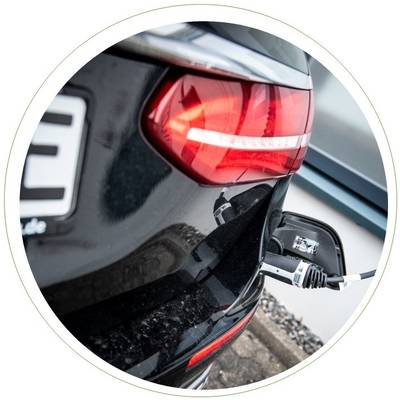
#1 Electromobility
With five charging columns and a total of eight charging stations, we have made it possible to charge cars and protect the environment. The company is using the opportunities provided by the new area of electromobility to support employees and encourage them to drive in an environmentally friendly manner – and we deliver the necessary infrastructure to make this happen. Interestingly, this power comes from our own photovoltaic plant and is therefore based on renewable energies.
In order to further expand the topic of electromobility, an internal survey has now been initiated to determine the demand for e-bikes. The initiative will give employees the opportunity of leasing electric bicycles through the company, making their commutes more environmentally friendly and also doing something for their own health.
Project group
Buildings and consumption
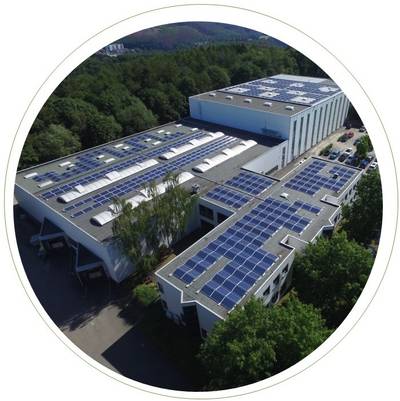
#1 Photovoltaic
The project group “Buildings and consumption” focused in part on developing a concept for environmentally-friendly energy supply. On the roof of ASSMANN Electronic GmbH, we now produce 239.8 kWp using 872 photovoltaic modules. This means that we are able to cover approximately three quarters of our annual power consumption with the climate-neutral energy that is generated. Our goal is to operate as close to climate neutral as possible and to actively contribute to the energy transformation.
#2 The ASSMANN bees
Honeybees are an indispensable part of our ecosystem, yet their numbers are falling drastically around the world. Not only do they produce honey, which is purported to have health benefits, they also ensure variety in our food chain by assisting in pollination. The conservation of bees is therefore crucial in order to preserve a healthy level of ecological biodiversity. Interestingly, they are the third most important agricultural animals after cattle and pigs. There are several ways to prevent bees from dying off dramatically, such as using plants that are beneficial to bees or providing nesting aids such as beehives.
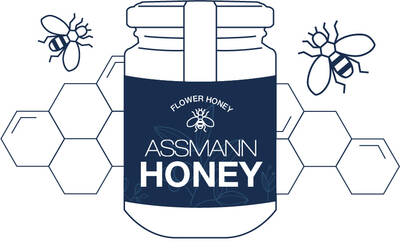
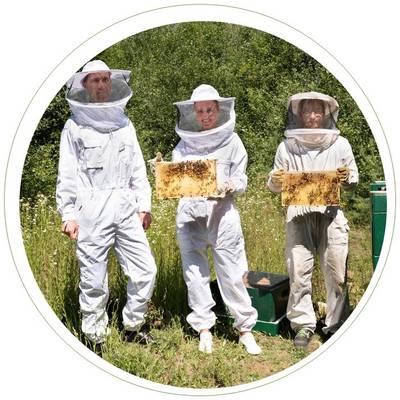
On one part of our company grounds that is surrounded by meadows and forests, we have placed two beehives. Each of these provides a new habitat for between 5,000 and 40,000 bees. In a radius of about one kilometer, the bees pollinate our indigenous plants, thereby helping to maintain high biodiversity and a healthy ecosystem.
Another bonus for ASSMANN employees: Once enough honey can be harvested, everyone will receive a jar of quality honey as a sweet reward for their environmental endeavors.
Project group
Products and materials
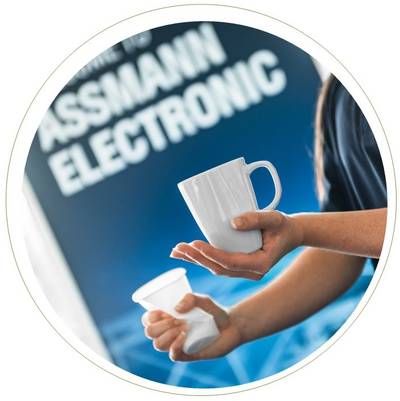
#1 Waste management
To reduce the total amount of plastic waste, we take measures such as eliminating the use of plastic cups at our coffee machines. At the same time, we have reorganized our internal waste management system. Instead of having multiple trash and plastic containers in every office, there is now a central waste station in each department. This makes cleaning easier and reduces the use of plastic bags for the containers. In addition, we have implemented the “yellow bag” only for plastics, which leads to less waste of raw materials.
We have also been separating paper consistently for many years and feeding it into the appropriate recycling process through an in-house paper press. A project group is also working on reducing plastic for our product packaging.